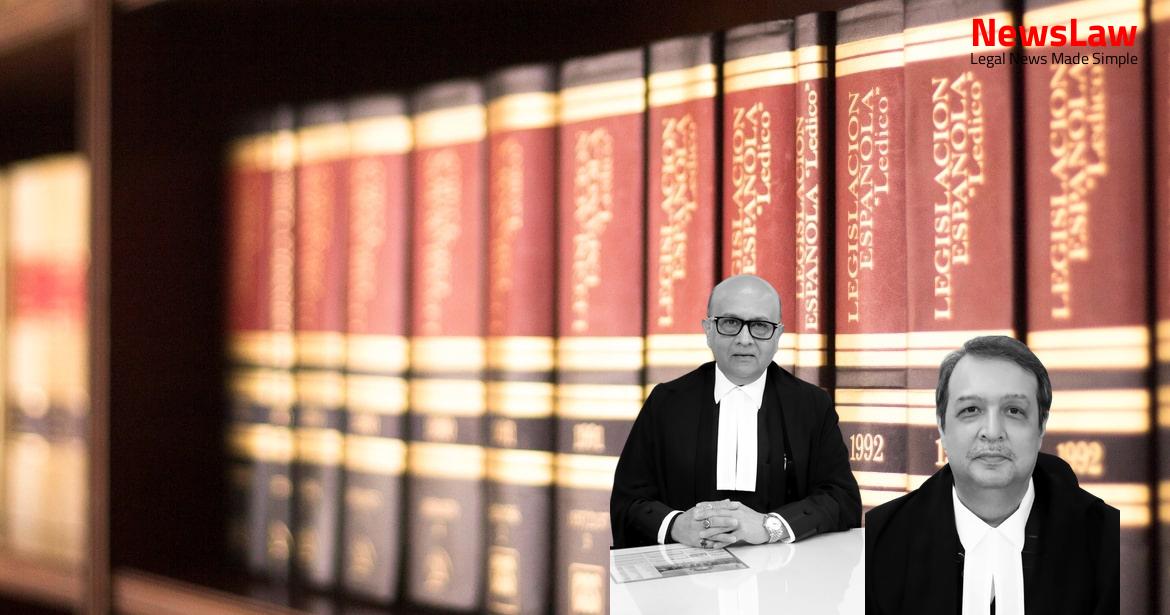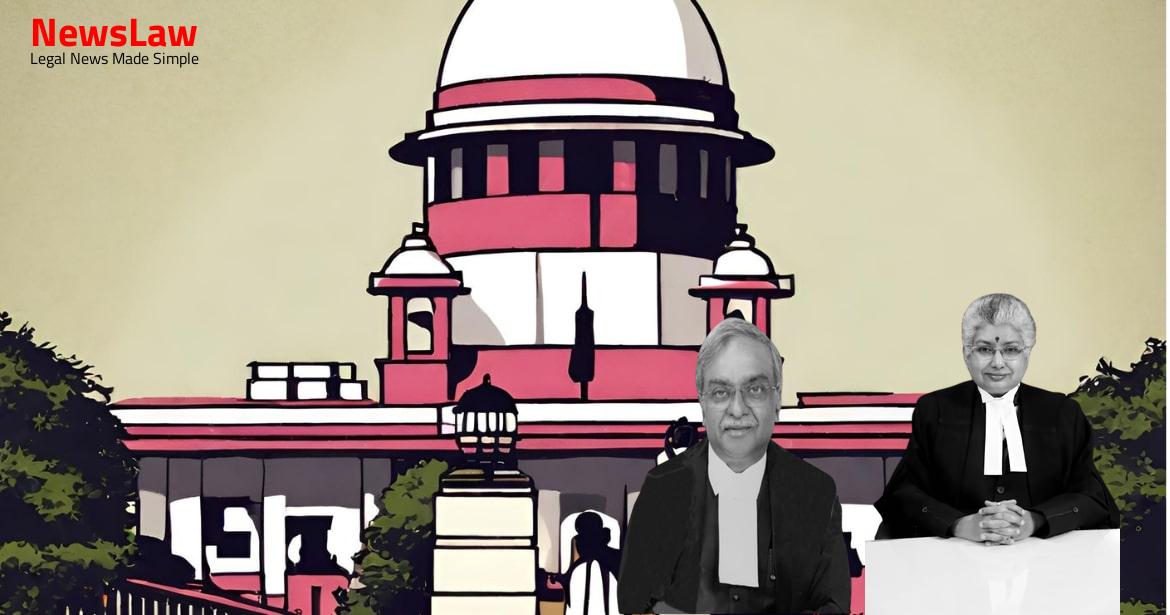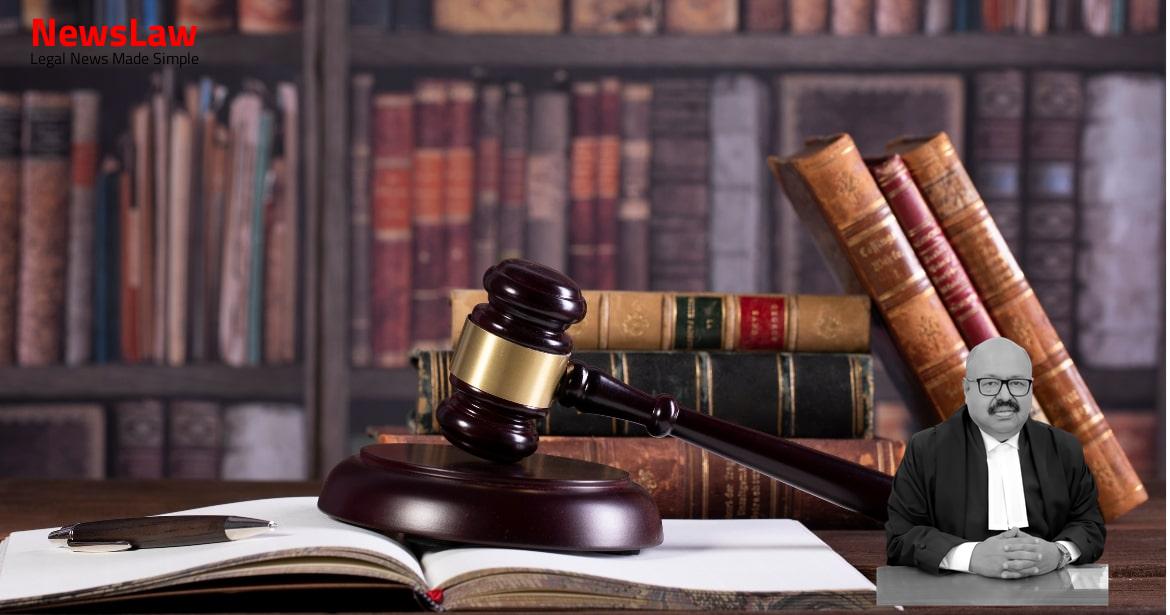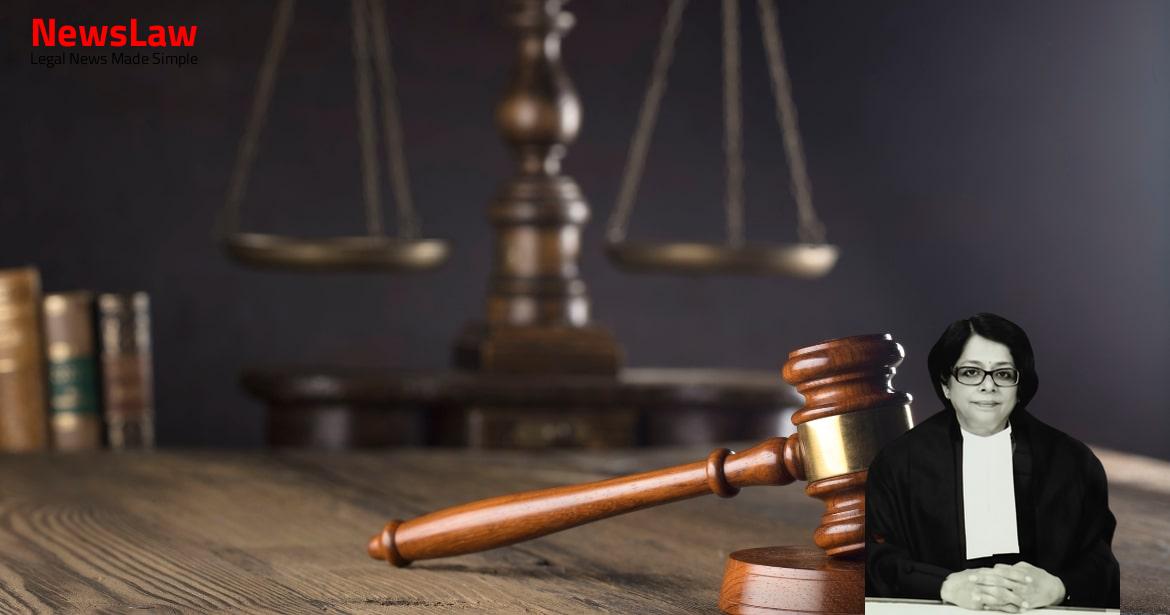A significant judgment by the Supreme Court of India pertains to the case between Bar Council of India and the State Bar Councils. The issue at hand revolves around the excess enrolment fees charged at the time of admission, impacting the legal profession. This summary delves into the implications of the ruling for future cases and advocates under the Advocates Act.
Facts
- The petitioner, Mr. Gaurav Kumar, raised concerns about the enrolment fees charged by State Bar Councils (SBCs) at the time of admission.
- Section 24(1)(f) of the Advocates Act specifies the enrolment fee to be charged by SBCs and the Bar Council of India (BCI) for admitting advocates.
- SBCs charge various additional fees such as library fund contributions, administration fees, identity card fees, welfare funds, training fees, processing fees, and certificate fees.
- The SBCs have functions like organizing legal aid for the poor, promoting law reform, conducting academic discourses, and publishing legal journals.
- The BCI is tasked with functions such as laying down standards of professional conduct for advocates, enunciating disciplinary procedures, and safeguarding the rights of advocates.
- The fees charged by SBCs for enrolment vary significantly, leading to law graduates having to pay between Rupees fifteen thousand to Rupees forty-two thousand at the time of enrolment.
- The petitioner sought a declaration that the fees charged at the time of enrolment violate Section 24(1)(f) of the Advocates Act.
- BCI exercises general supervision and control over the SBCs in matters related to legal professionals and advocates.
Also Read: Scheduled Castes Reservations: Sub-Classification Dispute
Arguments
- The petitioners challenged the levy of enrollment fees by the Bar Council of Kerala exceeding the fee prescribed in Section 24(1)(f).
- Key submissions by Mr. Raghenth Basant included that rules prescribed by the SBCs cannot exceed the enrolment fee specified in Section 24(1)(f).
- Senior counsel Mr. Manan Kumar Mishra emphasized the need for adequate operational funds for Bar Councils to fulfill their functions and highlighted the lack of representation in the legal profession.
- Mr. Mishra also argued against additional fees imposed by the Bar Council of Kerala as a condition for enrolment, stating that it goes against the legislative policy of the Advocates Act.
- The petition urged the Court to direct the Union Government to revise the enrolment fee specified in Section 24(1)(f).
Also Read: NEET (UG) 2024 Examination Integrity Case: Supreme Court Verdict
Analysis
- The State Bar Councils (SBCs) charge enrolment fees at the time of enrolment, which includes various miscellaneous fees.
- The SBCs can only charge fees as per the stipulation under Section 24(1)(f) of the Advocates Act.
- The excess enrolment fees charged by the SBCs are deemed arbitrary and without legal authority.
- The Bar Council of India (BCI) issued a resolution directing SBCs to charge revised enrolment fees.
- The SBCs justify charging miscellaneous fees as one-time lump sum payments due to lack of financial assistance from the government.
- Various reasons given by SBCs for charging additional fees include sustaining operations and welfare programs for advocates.
- A uniform fee structure was proposed by the BCI in 2023, emphasizing fair and just fee charges at the time of enrolment.
- The SBCs cannot charge fees beyond what is stipulated by the Advocates Act, and any excess fees charged are inconsistent with the legislative intent.
- The legislative scheme of the Advocates Act provides a complete code for admission and enrolment of advocates.
- Delegated authorities must adhere strictly to the legislative provisions and cannot impose fees beyond what is authorized by law.
- Section 25 requires advocates to apply for admission to the State Bar Council (SBC) where they plan to practice.
- SBCs have the power to make rules under Section 15, including charging fees for services under the Advocates Act.
- Charges must pass the test of quid pro quo, and restrictions can be imposed under Article 19(6) on the right to practice.
- Section 30 grants all advocates in the State roll the right to practice in all Indian courts.
- Chapter III of the Advocates Act deals with admission and enrollment of advocates.
- Section 24 lays down conditions for advocate admission, including the payment of an enrollment fee.
- The State can legislate on professional qualifications, as per the Act.
- Other sections in Chapter II detail the establishment and functions of SBCs and the Bar Council of India (BCI).
- Legal provisions like Section 12 establish presumptions for agricultural transactions.
- Certain conditions like citizenship, age, and legal degree must be met to be admitted as an advocate.
- BCI rules can regulate voting rights, Bar Council membership, and legal education criteria.
- Section 24A sets disqualification criteria for advocate admission.
- SBCs have rule-making authority on advocate admission processes.
- Rules regarding admission conditions should align with statutory requirements.
- SBCs should adhere to prescribed qualifications when charging enrollment fees.
- Payment of fees is a requirement for advocates on the SBC rolls, not a pre-requisite for enrollment.
- The Advocates Act draws sustenance from the guidelines laid down by the Act.
- The Act did not prescribe specific qualifications for advocates under the 1926 Act.
- The Bar Councils could prescribe qualifications, but enrollment was conducted by the High Courts.
- The creation of autonomous Bar Councils, one for all of India and one for each State, was mandated.
- The main features of the Advocates Act included the establishment of an All-India Bar Council and a common roll of advocates with the right to practice across the country and in any Court.
- Integration of the bar into a single class known as advocates was emphasized in the Act.
- A uniform qualification for admission of persons to be advocates was prescribed.
- In 1993, the enrollment fee for general candidates was increased from Rupees 250 to Rupees 750.
- Concerns were raised about the excessive amount levied by the All-India Bar Committee as proposed fees.
- Stamp duty payable on the certificate of enrollment was not considered a condition for enrollment but a taxation matter.
- The distinction between regulatory and compensatory license fees was highlighted in a specific case.
- The redundancy of the concept of merit and challenges faced by first-generation learners were discussed in a particular case.
- Social capital and networks played a vital role in advancing legal careers in India, especially for advocates.
- The role of the State Legislature in levying stamp duty was reaffirmed under List III of the Seventh Schedule.
- The powers of State Bar Councils under Section 15 were delineated, emphasizing alignment with the Advocates Act.
- Differences between rule-making powers of State Bar Councils and the Bar Council of India were clarified by the Courts.
- The excessive enrollment fee structure was found to serve as a barrier for marginalized and economically weaker individuals entering the legal profession.
Also Read: Mineral Royalties: A Constitutional Conundrum
Decision
- The judgment will have prospective effect, meaning it will apply only to future cases.
- SBCs cannot charge enrolment fees beyond what is legally stipulated in Section 24(1)(f).
- Only the stipulated enrolment fee and stamp duty, if any, can be demanded by SBCs and BCI for enrolment.
- The decision to charge excess fees violates Article 14 and Article 19(1)(g) of the Constitution.
- The ruling does not require SBCs to refund any excess enrolment fees collected before the date of this judgment.
Case Title: GAURAV KUMAR Vs. UNION OF INDIA (2024 INSC 558)
Case Number: W.P.(C) No.-000352 – 2023



